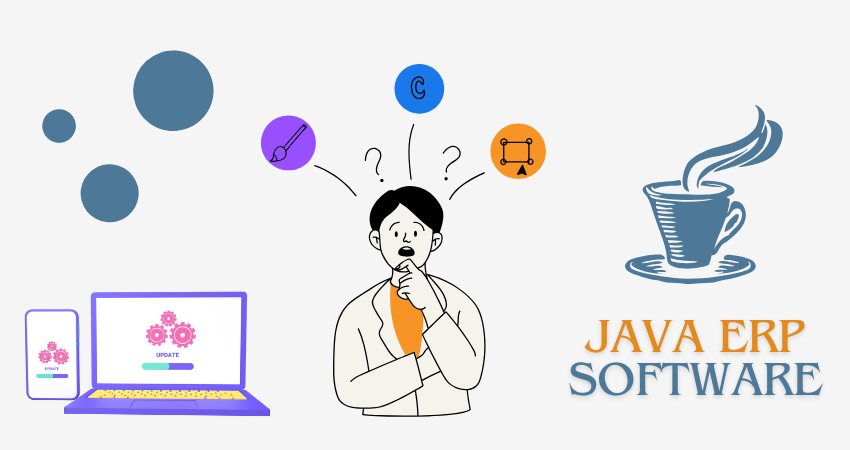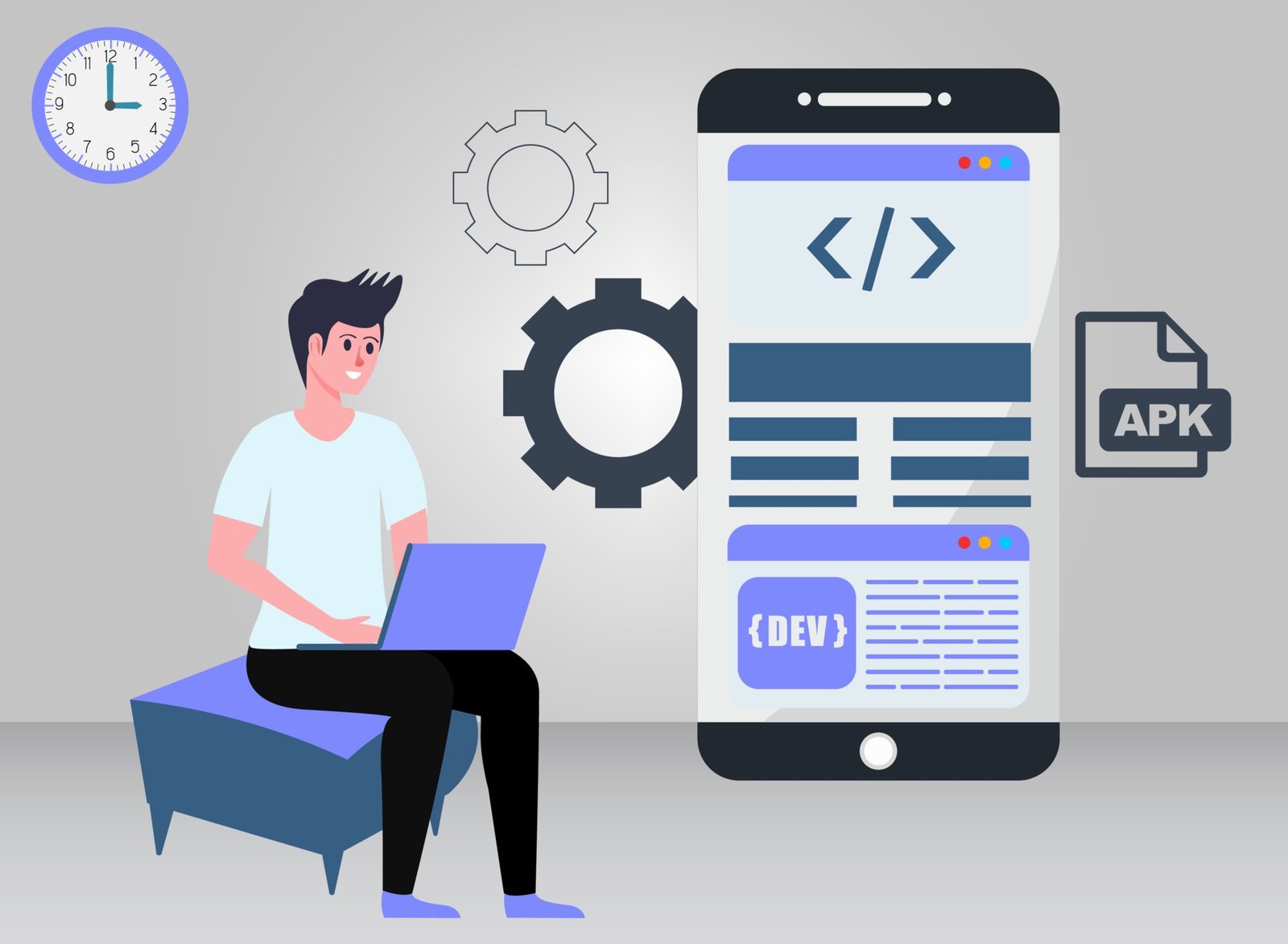Enterprise Resource Planning (ERP) systems are essential for companies looking to streamline their operations, improve efficiency, and manage resources effectively. Java is a popular choice for ERP development due to its flexibility, scalability, and extensive library support. However, selecting the right framework to develop Java ERP software is critical for ensuring that the system aligns with business goals, performs well, and remains adaptable over time. This guide explores key considerations and insights for choosing a Java framework tailored to your ERP system needs.
Understanding the Importance of the Right Framework in Java ERP Development
Choosing an appropriate framework for Java ERP development can substantially impact project success. The right framework ensures that your ERP software is adaptable, efficient, and easy to maintain, providing a seamless experience for end-users and enabling easy integration with other systems. Moreover, frameworks play a crucial role in determining the overall cost and timeline for ERP projects, which are important considerations for any IT software development company and their clients.
In the competitive ERP software market, where businesses are always looking for solutions that simplify and optimize operations, companies need frameworks that support essential ERP features using Java such as modularity, scalability, data security, and robust reporting. Businesses in regions like Dubai, known for housing top ERP software providers, can offer solutions that meet industry standards and client expectations by focusing on these aspects.
Key Considerations When Choosing a Java Framework for ERP Development
1. Scalability and Flexibility
ERP software is expected to grow with a business, and this requires a framework that can handle increased data volume and user demand. Java frameworks such as Spring, Hibernate, and Apache Struts offer the scalability necessary to support enterprise-level applications. When selecting a framework, consider whether it can accommodate a growing number of transactions, users, and data points without sacrificing performance.
Spring Framework: Known for its comprehensive features and flexibility, Spring provides the architecture needed for scalable ERP systems. With modules like Spring MVC for web development and Spring Boot for microservices, the framework offers a flexible environment to build various components of ERP software.
Hibernate: For ERP systems that demand extensive data processing, Hibernate provides a powerful ORM (Object-Relational Mapping) tool that simplifies database management and enhances performance. This framework is ideal for ERP solutions requiring complex data interactions.
Apache Struts: A robust option for ERP software, Apache Struts is a widely used Java framework for building scalable, high-performance applications. Its support for MVC (Model-View-Controller) architecture makes it a solid choice for ERP applications that handle heavy data loads.
2. Modularity and Reusability
ERP software typically consists of multiple modules, such as accounting, inventory, and human resources. The framework you choose should support a modular approach, allowing the ERP to be developed in independent yet interconnected components. This modularity not only enhances reusability but also simplifies maintenance and future upgrades.
For instance, Spring Boot excels in modularity by enabling developers to create microservices. This allows each module of the ERP system to function independently while still being part of a unified system. By using microservices, ERP software companies can easily scale, update, or replace individual modules without affecting the entire system.
3. Database Compatibility and Integration
ERP systems handle vast amounts of data, so compatibility with multiple databases is essential. While Java frameworks such as Hibernate simplify database operations through ORM, they also support a wide range of databases like MySQL, Oracle, and SQL Server. This compatibility ensures seamless integration with a business’s existing database infrastructure, which is particularly advantageous for established enterprises with legacy systems.
ERP software companies in Dubai, for instance, often deal with clients using diverse database systems. Ensuring that your Java framework supports seamless integration with multiple databases helps mitigate compatibility issues and facilitates data migration when necessary.
4. Security and Compliance
Given the sensitive nature of the data managed by ERP systems, robust security is non-negotiable. When selecting a Java framework, security features such as encryption, access control, and authentication mechanisms should be a top priority. Frameworks like Spring Security offer built-in security modules that can help safeguard sensitive business information.
ERP software solutions often have to comply with industry-specific standards and regulations. By selecting a framework that offers reliable security features, software developers can ensure that their ERP system complies with regulations like GDPR for data protection, which is crucial when targeting international markets.
5. Performance Optimization
Performance is a cornerstone of successful ERP software, particularly for applications that will handle large transaction volumes and numerous concurrent users. High-performance frameworks ensure that ERP software remains responsive and efficient under heavy workloads, enhancing the end-user experience.
Frameworks such as Spring and JavaServer Faces (JSF) excel in optimizing application performance. Spring’s dependency injection and aspect-oriented programming features contribute to performance improvements by reducing code complexity. Similarly, JSF’s component-based architecture facilitates efficient application rendering and UI management, making it ideal for ERP applications requiring fast response times.
Exploring Popular Java Frameworks for ERP Development
1. Spring Framework
Spring is one of the most popular frameworks for ERP software due to its flexibility, modularity, and extensive feature set. With a range of modules like Spring MVC for web development and Spring Boot for creating microservices, Spring supports complex ERP requirements and enables developers to build scalable applications.
Benefits of Spring for ERP Software:
- Comprehensive ecosystem with support for MVC and microservices.
- Built-in security features with Spring Security.
- Strong community support and extensive documentation.
Spring is ideal for ERP applications that need to adapt over time and integrate with multiple systems. Its extensive libraries and support for microservices make it a preferred choice for ERP software companies aiming to build modern, modular ERP solutions.
2. Hibernate
Hibernate simplifies database management in ERP software by automating data storage and retrieval processes. Its ORM capabilities allow ERP systems to interact with databases more efficiently, reducing the need for extensive SQL code.
Benefits of Hibernate for ERP Software:
- Reduces database interaction complexity with ORM.
- Supports various databases, ensuring compatibility with diverse infrastructures.
- Minimizes data-related errors, enhancing application reliability.
Hibernate is especially beneficial for ERP solutions that require advanced data processing and efficient database management, such as those offered by leading ERP software companies in the UAE.
3. Apache Struts
Apache Struts is a robust Java framework known for its stability and performance. It follows the MVC architecture, which is ideal for organizing ERP applications with numerous data-heavy modules. Struts is known for its scalability, making it a suitable choice for ERP solutions that need to grow with a business.
Benefits of Apache Struts for ERP Software:
- Stable and well-established framework with proven scalability.
- MVC architecture enhances code organization and maintenance.
- Suitable for applications requiring high performance under load.
Apache Struts can be an excellent choice for ERP developers who need a reliable, scalable framework to support heavy data loads and a high number of users, commonly required in top ERP software in Dubai.
4. JavaServer Faces (JSF)
JSF is a Java-based web framework that simplifies UI development. For ERP applications with complex user interfaces, JSF provides a component-based approach that makes UI design more manageable and customizable.
Benefits of JSF for ERP Software:
- Facilitates the creation of complex UIs, which is essential for ERP systems.
- Component-based structure allows for a modular development approach.
- Supports AJAX for dynamic and interactive UI elements.
JSF is ideal for ERP applications with extensive user interfaces, providing a smooth and user-friendly experience for end-users. This framework is beneficial for ERP systems where user interaction plays a significant role in daily operations.
Tips for Selecting the Right Framework for Your ERP Software
Choosing the best framework for Java ERP development involves weighing project requirements, client expectations, and business goals. Here are some actionable tips to guide software development your decision:
- Assess Project Requirements: Understand the specific needs of the ERP project, including module requirements, security, and integration needs.
- Evaluate Long-Term Scalability: Choose a framework that supports easy scaling as your ERP software grows with the business.
- Prioritize Security Features: Make sure the framework offers robust security features to protect sensitive business data.
- Consider Development Time and Cost: Factor in the time and cost implications of different frameworks to ensure the project remains within budget.
- Seek Community Support: Select a framework with a strong developer community and ample resources for troubleshooting and updates.
Conclusion
Finding the right framework for Java ERP software is a critical step in developing a reliable, scalable, and secure system. By carefully considering factors such as scalability, modularity, database compatibility, and security, businesses can select a framework that aligns with their ERP goals and ensures optimal performance. Frameworks like Spring, Hibernate, and Apache Struts offer robust solutions for ERP software, each with distinct advantages that cater to various project requirements.
For software development companies, ERP software developers, and businesses seeking ERP solutions, understanding these frameworks’ strengths and how they align with ERP demands is essential. A well-chosen framework not only streamlines development but also provides a foundation for a scalable, efficient, and adaptable ERP system, enabling businesses to stay competitive and manage resources effectively.
To read more about Google Workspace Tools and PPC Ad Management



